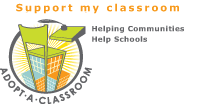Norwalk Public Schools have adopted Google Classroom. Only the 2019 Summer Assignments are active assignments.
"Until the lions have historians, histories of the hunt will only glorify the hunter."
-An African Proverb
HISTORY IS NOT ABOUT INFORMATION
"Information has become an industry, a commodity to be packaged, promoted and marketed incessantly. The tools for 'accessing' data grow ever more wondrous and ubiquitous and essential if we're to keep in step, we've come to believe. All hail the Web, the Internet, the Information Highway. We're being sold the idea that information is learning, and we're being sold a bill of goods. Information isn't learning. It isn't common sense necessarily. It isn't kindness. Or trustworthiness. Or good judgment. Or imagination. Or a sense of humor. Or courage. It doesn't tell us right from wrong."
David McCullough, May 25,1999
WHAT DOES THE STUDY OF HISTORY DO FOR US?
I. ". . .But looking back on it, I also can see that the use of history contributed to some rich habits of mind that, I hope, have continued to develop.
One is the obvious but powerful notion that things are never as simple as they seem. There is not a single answer, a big main cause, a solitary hero or villain. The historical picture is always murky or shaded, multivariant, nuanced. In using history to make an argument, I had to move cautiously, weigh things, ask if there could be another explanation. I. would commit, finally, to an interpretation and frame a critique of an institutional practice, but in so doing, I'd always lack some information, always operate with some degree of uncertainty.
The second notion is related to the first and again is obvious but powerful: even the most solid, entrenched practice or belief emerged out of a set of complex historical circumstances. Things weren't always as they are today. Particular events, powerful actors, beliefs about society and human nature, and just blind chance led to where we are—and not without conflict and contestation. Other developments were possible; other ideas were in the air."
Mike Rose
II. “I don't believe that history teaches a lot of little lessons to guide us in the present and future. It is not, as the 18th century thought, ‘philosophy teaching by example.’ Yet by disparaging the capacity of history to teach lessons, I don't mean to suggest that studying the past can't teach us anything. If history has nothing to say to us, then it wouldn't make much sense to study or teach it or read about it at all. History is important to us, and knowledge of the past can have a profound effect on our consciousness, on our sense of ourselves. History is a supremely humanistic discipline: it may not teach us particular lessons, but it does tell us how we might live in the world.
Some have said that history for a society is like memory for an individual. Without memory the individual is isolated, cut off from where he has been and who he is. But creating memory for a society is a tricky business; it can have very perverse effects, as some scholars have discovered over the past several decades.
Perhaps there has always been a tension between critical history and memory, between what historians write and what the society chooses to remember.”
Gordon S. Wood
Important files for all classes:
You'll need Adobe Reader to read many of the documents on these pages. Download it here. (If you have trouble seeing the document, try right-clicking on the link and "Save Target as," then save the file to your computer, and open the file.)
Many documents are in Microsoft Word format. If you don't have MS Office, you can download a free office suite that will allow you to open MS documents. There are several - here is a link to one of them, Kingsoft Office
All students must register for Turnin.com.
If you are in one of my classes, you will be using it, so here's where to go to learn.
You can access assignments, files, and other materials for my Honors U.S. History (HUSH) and AP U.S. Government & Politics (APGoPo) classes. Just click on the menu bar.
OTHER VERY USEFUL LINKS:
- ICYouSee, or how to use the Web.
- How to Study
- Why you should be careful about using Wikipedia (and why it will not be accepted as a source).
- Bibliography Help - these sites will create a properly formatted bibliography for you; usually you
can just type in the ISBN of a book or the URL of a website and the site will fill in the information:
NoodleTools
Easy Bib
There's a smartphone app (RefME) that will generate citations by scanning book or journal barcodes
using your phone’s camera
Using Primary Sources on the Web
Some advice on how to read primary source materials.
Some advice on how to take notes, in class and on assigned reading.
General Essay Writing Tips:
- Please take a moment to read "Fenster on Writing" for some very good advice. (here it is as a Word file)
- PLEASE, FOR ALL OUR SAKES, DOWNLOAD, READ, AND SAVE "THROUGHOUT HISTORY"!
- Here are some words you should begin to use more often in your
essays. Don't say "said" when there are so many good alternatives.
And don't say "also" when you can use words like these.
- Take a look at "LOGICAL FALLACIES," and learn how to avoid common
mistakes.
Questions? Email wagenbergd@norwalkps.org

|
|
